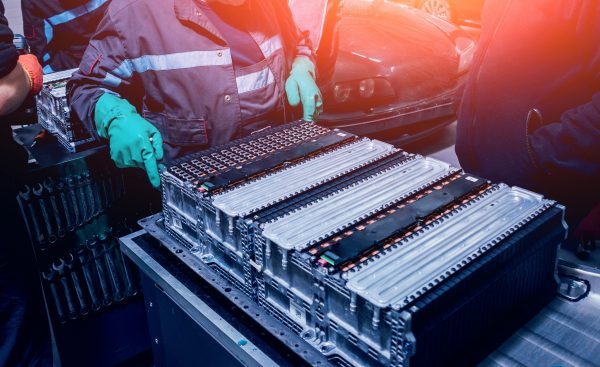(ATF) Innovative new indices such as the ATFI Global Green Energy Transport and Technology Leaders Index can help investors better understand supply chains as the world undergoes unprecedented economic and geopolitical change.
“There is this profound global regime change [going on] – sort of a multipolar system anchored by both the United States and China,” said Peter Knez, co-founder at Incapture Technologies and a former chief investment officer at BlackRock.
“And so that regime change, that we’re really in the early innings of in many ways, is having a profound effect on the restructuring of global supply chains.”
Knez points to the announcement that Taiwan’s TSMC is building a computer-chip fabrication plant in Arizona as symptomatic of a global upheaval. “So the US now wants to have their own fabrication plants,” he said, pointing to an increasing regionalisation of supply chains replacing the former globalised outlook.
“And you see that in the migration of technology firms from China into India,” he added.
One sector that is deeply affected is electric vehicles. “So those are all examples of sort of regionalisation of global supply chains in the electric vehicle space, or certainly components of the supply chain that are critical for EVs,” Knez said, citing batteries, as well as semiconductors.
For its part, Beijing has pushed back with its own localisation plans, venture capitalist Alfred Chu said.
“China has really pushed for Increase localisation of supply chain with a focus on input replacement and economic and innovation security,” he said. “So, in the last decade, we’ve seen that in all sort of clean energy areas, as there has been a requirement for 70% local content.”
PUSH TO LOCALISE
For the past four or five years, subsidies for EVs required them even to have locally made batteries. “And so, batteries that were previously sold very well, and design into vehicles, such as those from companies like Samsung were excluded from any subsidies and therefore had very difficult time selling into the marketplace,” Chu noted.
He expects that attitude to harden. “We’ll see increasing requirements for localisation too, as a requirement for any sort of subsidies and sort of to access the general market.”
To track such complex developments, investors need a smart index, said Christian Kronseder, professor at University of Applied Sciences and Arts Northwestern Switzerland.
“From an index construction point of view this poses a very interesting challenge, because localisation of the supply chains means we have to cast a wider net than you usually do.”
Kronseder said it takes extra effort to identify local companies that are important to the supply, chain. “So we not only have to look into financial data, but also into alternative data in order to find those companies, which then dominate the local supply-chain markets.”
For the ATFI Global Green Energy Transport and Technology Leaders Index, Kronseder said it was key to apply advanced algorithms, machine learning and artificial intelligence to actually find those suppliers, “which are not as prevalent as you might usually do in a regular index construction setting.”
.png)




